Combining a prevention pill with community treatment programs
UC's California HIV/AIDS Research Program has funded studies to test a HIV prevention pill among high-risk HIV-uninfected people in the state.
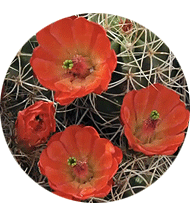
A tale of two UC natural reserves
The James San Jacinto Mountains Reserve and the Sweeney Granite Mountains Reserve in the Mojave Desert are outdoor labs for students and scientists.
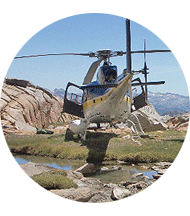
Offering care and calm in the wild
Doctors at a UCSF Fresno program don't just provide emergency care to those who become sick or injured in the backcountry. They research lifesaving techniques and have become leading specialists in wilderness medicine.
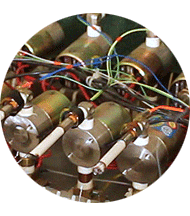
After the smoke clears, danger still lurks
Thirdhand smoke is a new frontier, and UC's Tobacco-Related Disease Research Program has assembled a consortium of investigators to study the health risks caused by the remnants of cigarette smoke.
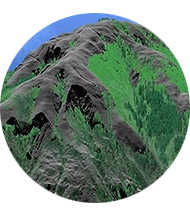
Remote sensing: placing nature at our fingertips
Researchers at UC Natural Reserve System locations use sensors to map land, track animals and collect environmental data.
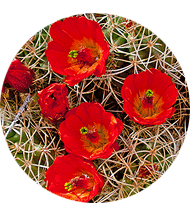
Wild bee research at UC Natural Reserve System
A large amount of native bee research in California occurs in the wild landscapes protected by the UC Natural Reserve System.
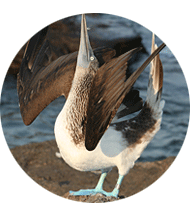
Crossing borders to kick-start novel research
Scientists in Mexico and at UC study the breeding habits of a remarkable seabird for possible clues about behavioral evolution and how animals may develop immunities. The project is one of many research collaborations supported by UC MEXUS.
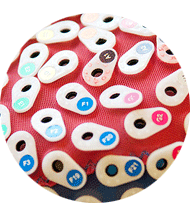
Looking at how we listen
UC graduate students are known for their braininess. At UC Berkeley, Adeen Flinker is getting a picture of the brain's intricacies and how the human auditory system is wired.

New medical, social strategies aim to keep high-risk youth free of HIV infection
Studies funded by UC's California HIV/AIDS Research Program hope to curb HIV in the state by engaging people at high risk in innovative prevention efforts in their communities.
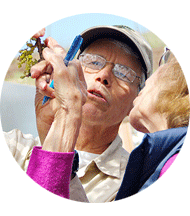
Studying the seasons: how climate change affects natural communities
UC Santa Barbara researchers have launched the California Phenology Project. Scientists, docents, staff, teachers and other citizen researchers will track the life stages of selected plant species at eight UC natural reserves.
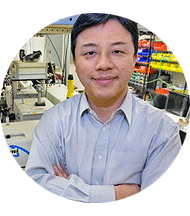
Pushing innovations to industry's doorstep
A tiny laser that could enable smaller and faster smart phones and tablets. A glucosamine-like supplement that targets the underlying cause of multiple sclerosis. These are among research projects getting a boost this year from a UC grants program. The Proof of Concept grants help move UC research out of the lab and to commercialization.
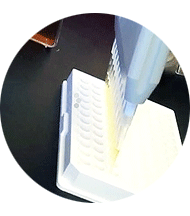
Persistence, passion lead to new attack on parasitic diseases
Based on research by UCSF and UC San Diego, the FDA has identified an arthritis treatment as an 'orphan drug.' It paves the way for a new drug to attack tropical parasites that disable and kill millions of people worldwide.
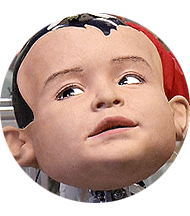
Crossing the 'uncanny valley'
It's when a humanlike robot, android or animated creature gives you the creeps. A UC San Diego scientist is looking at what's going on in our brains when we view these characters.
Rising stars of science
Five UC graduate students and postdoctoral researchers were among innovators named 'Rising Stars of Science: The Forbes 30 under 30.'
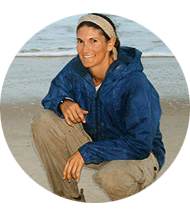
Evaluating marine parks in the high seas
California is a leader in protecting marine life and areas, and UC scientists play an important role in studying, advising and shaping policy that must balance the environmental needs of the ocean with those of millions of users.
Graduate student researchers mix technology and humanity
Graduate students are at the heart of UC research. And many package their expertise, creativity and compassion to tackle and solve key problems in California and beyond.

Bach to the blues, our emotions match music to colors
Our brains are wired to make music-color connections depending on how the melodies make us feel, according to new research from UC Berkeley.
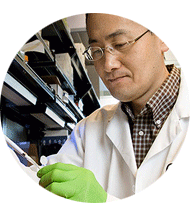
Shinya Yamanaka, Gladstone and UCSF scientist, wins 2012 Nobel Prize in Medicine
Shinya Yamanaka has won the 2012 Nobel Prize in Physiology or Medicine for his discovery of how to transform ordinary adult skin cells into cells that, like embryonic stem cells, are capable of developing into any cell in the human body.
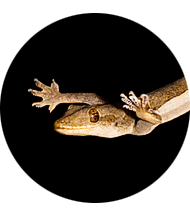
Lizard tails and gecko feet inspire industries, students
UC Berkeley discoveries about these agile and sticky reptiles have sparked product ideas ranging from rescue robots to sports gear. And they have captured the research imagination of undergraduate and graduate students.
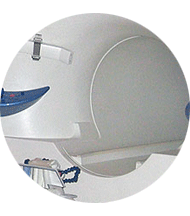
Learning by getting into the heads of schoolchildren
New brain imaging technology may pave the way for a new science to understand how children think and learn. It could eventually help educators and revolutionize classrooms.
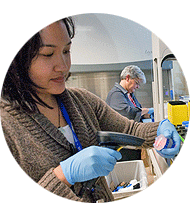
Spit in time may help save lives
An ambitious project, teaming Kaiser Permanente and UCSF researchers, takes aim at genetic links to disease.
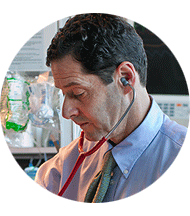
Stem cell research heads to the clinic
For more than a decade, stem cell science has raised hopes of cures for a host of diseases and illnesses. Now, the research pace has picked up with lab discoveries moving to tests of therapies for patients.
UC receives more than $25M in stem cell grants
Nineteen UC scientists received $25.8 million in grants May 4 from the state's stem cell agency to study the underlying biology of stem cells.